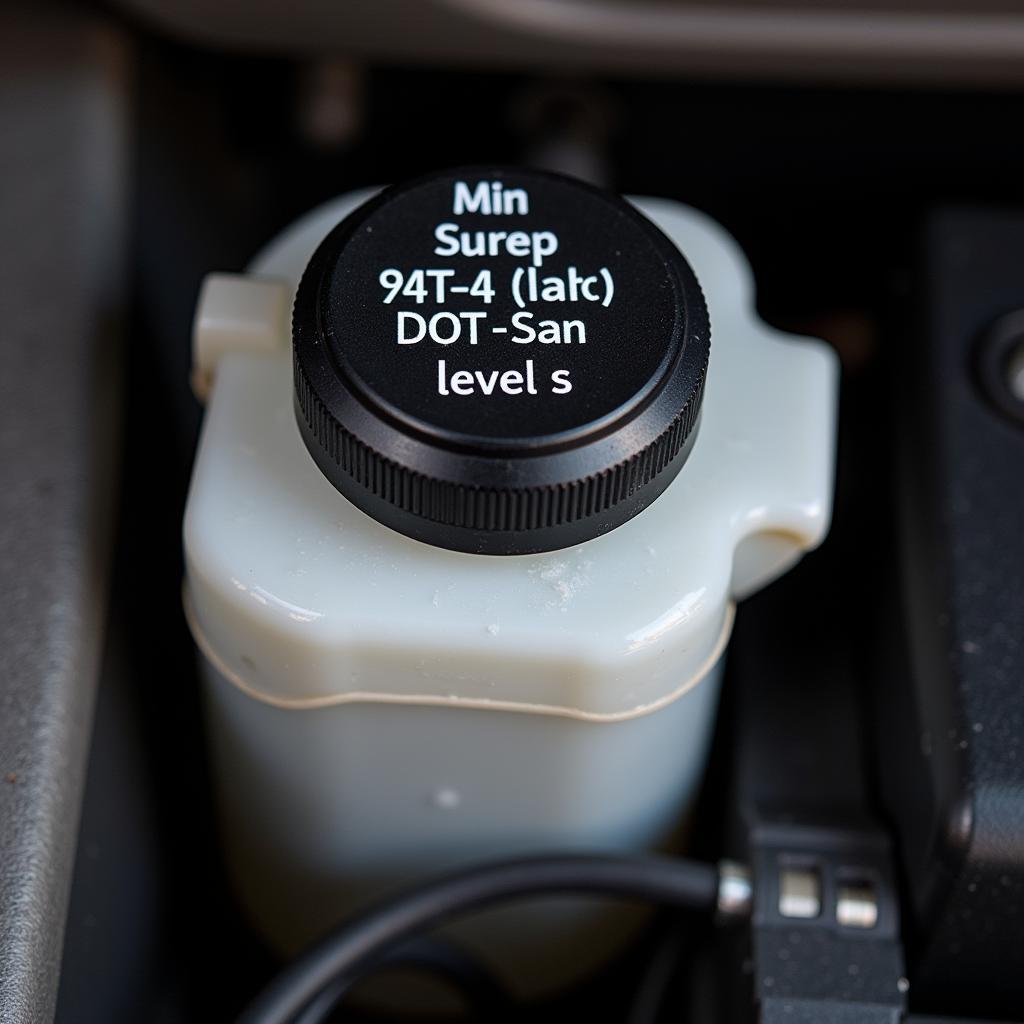The heart-stopping moment you’re driving and a warning light illuminates on your dashboard is something all drivers dread. Even more unsettling is when that light signals a problem with your brakes. Seeing the Buick brake warning light flicker or stay lit is a clear indicator that something requires your attention. This comprehensive guide delves into the various “Buick brake warning light meanings,” equipping you with the knowledge to address the issue head-on.
While this guide provides valuable information, it is crucial to remember that it is not a substitute for professional advice. Always consult with a qualified mechanic for diagnosis and repair.
Common Buick Brake Warning Light Meanings
Your Buick brake warning light can illuminate for several reasons, each indicating a different level of urgency. Understanding these meanings can help you gauge the severity of the situation and take appropriate action.
1. Parking Brake is Engaged
One of the most common and least concerning reasons for the brake warning light to activate is an engaged parking brake. It might seem obvious, but many drivers forget to disengage the parking brake fully before driving off.
Quick Tip: If the light turns off after disengaging the parking brake, you’re good to go.
2. Low Brake Fluid Level
A more serious reason for the warning light is low brake fluid. Your Buick’s braking system relies on hydraulic pressure created by the brake fluid to function correctly. A drop in fluid level often indicates a leak in the system, requiring immediate attention.
Important Note: Driving with a leak in your brake system is incredibly dangerous. If you suspect a leak, stop driving immediately and contact a qualified mechanic.
3. Brake Pad Wear
Like any component exposed to constant friction, your Buick’s brake pads wear down over time. Most modern Buicks come equipped with sensors in the brake pads that trigger the warning light when the pads thin down to a certain level, indicating the need for replacement.
Heads Up: Ignoring worn brake pads can lead to more expensive repairs down the line, potentially damaging the rotors.
4. ABS System Malfunction
Many Buicks feature Anti-lock Braking Systems (ABS) to prevent wheel lockup during hard braking, improving vehicle control. A malfunction within the ABS system, often due to a faulty sensor or control module, can trigger the brake warning light.
Remember: While your standard braking system may still function with a faulty ABS, you won’t have the added safety net of anti-lock brakes. It’s essential to get it checked by a professional.
5. Electronic Brake System Issue
Modern Buicks incorporate various electronic components in their braking systems, like Electronic Brake-force Distribution (EBD) and Electronic Stability Control (ESC). Problems with these electronic systems can also activate the brake warning light.
Expert Insight: “Electronic brake systems are becoming increasingly sophisticated,” says John Miller, a senior automotive engineer with over 20 years of experience. “While they offer enhanced safety features, they also introduce more complex components that can potentially malfunction.”
Troubleshooting Your Buick Brake Warning Light
While a professional mechanic should diagnose and address significant issues, you can perform some basic checks if your Buick brake warning light comes on:
- Check the parking brake: Ensure the parking brake is fully disengaged.
- Inspect the brake fluid level: If comfortable, carefully open the brake fluid reservoir and check the fluid level. If it’s low, there might be a leak.
- Listen for unusual sounds: Screeching or grinding noises when applying the brakes could indicate worn brake pads.
Buick Brake Warning Light: FAQs
1. Can I drive with the brake warning light on?
It depends on the cause. If the parking brake is engaged, simply disengaging it should resolve the issue. However, if the light indicates low brake fluid, worn pads, or a system malfunction, it’s unsafe to drive.
2. How much does it cost to fix a Buick brake warning light issue?
The cost varies significantly depending on the underlying problem. A simple brake fluid top-up might cost a few dollars, while replacing brake pads could range from $150 to $300 per axle. More complex issues like ABS module replacement can cost upwards of $1000.
3. How often should I check my brake fluid?
It’s good practice to check your brake fluid level at least once a month and top it off if necessary.
4. How long can I drive on worn brake pads?
This is not recommended. Driving on worn brake pads significantly compromises your braking ability and can damage other brake components. Have them replaced as soon as possible.
5. Can I add any brake fluid to my Buick?
Always use the brake fluid type specified in your Buick’s owner’s manual. Using the wrong type can damage the braking system.
Conclusion
The Buick brake warning light is a critical safety feature, alerting you to potential issues with your braking system. Understanding the various “Buick brake warning light meanings” empowers you to take appropriate action and ensure your safety on the road. Remember, while some checks can be done at home, it’s always best to consult a qualified mechanic for any brake system repairs or concerns.

